Would You Trust a Robot in a Burning Building?
March 2, 2024 9:58 am | by Greg Watry, Digital Reporter | News | CommentsResearchers put 42 participants through an experiment—giving them a choice to trust a robot in a time of emergency or go with their intuition. Which one did most choose?
Health Groups Aim to Make Medical Records Easier to Access
March 1, 2024 10:12 am | by Ricardo Alonso-Zaldivar, Associated Press | News | CommentsTechnology companies, hospital systems and doctors' groups have agreed to take steps to make electronic health records easier for consumers to access and use, the Obama administration announced Monday.
Wildlife Secrets Revealed with Advanced Tracking Devices
February 29, 2024 10:19 am | by Keith Ridler, Associated Press | News | CommentsSolar-powered trackers on wings have recorded California condors soaring to 15,000 feet, while locators attached to humpback whales have revealed 1,000-foot dives to underwater mountains. And GPS collars on Yellowstone grizzly bears are giving new insights into one of the most studied large carnivore populations in the world.
Genetically Modified E. coli Pump Out Morphine Precursor
February 26, 2024 11:33 am | by Kyoto University | News | CommentsA common gut microbe could soon be offering us pain relief. Japanese bioengineers have tweaked Escherichia coli genes so that they pump out thebaine, a morphine precursor that can be modified to make painkillers.
Cleveland Surgeons Perform Nation's First Uterus Transplant
February 26, 2024 11:26 am | by Lauran Neergaard and Mark Gillispie, Associated Press | News | CommentsSurgeons in Cleveland say they have performed the nation's first uterus transplant, a new frontier that aims to give women who lack wombs a chance at pregnancy.
Copper Destroys MRSA at a Touch
February 24, 2024 10:32 am | by University of Southampton | News | CommentsNew research shows that copper can destroy MRSA spread by touching and fingertip contamination of surfaces.
Breaking Through the Bacteria Barrier
February 22, 2024 10:47 am | by Jennifer Chu, MIT News Office | News | CommentsA new microfluidic device developed by engineers may help scientists quickly home in on the electric field “sweet spot” — the range of electric potentials that will harmlessly and temporarily open up membrane pores to let DNA in. In principle, the simple device could be used on any microorganism or cell, significantly speeding up the first step in genetic engineering.
Stretchable Nano-devices Towards Smart Contact Lenses
February 22, 2024 10:06 am | by RMIT University | News | CommentsResearchers have created a stretchable nano-scale device to manipulate light. The device manipulates light to such an extent that it can filter specific colors while still being transparent and could be used in the future to make smart contact lenses.
Mind-Controlled Prosthetic Arm Moves Individual ‘Fingers’
February 18, 2024 11:39 am | by Johns Hopkins University | News | CommentsPhysicians and biomedical engineers report what they believe is the first successful effort to wiggle fingers individually and independently of each other using a mind-controlled artificial “arm” to control the movement.
Enabling Human-robot Rescue Teams
February 17, 2024 9:49 am | by Larry Hardesty, MIT News Office | News | CommentsResearchers presented a new way of modeling robot collaboration that reduces the need for communication by 60 percent. They believe that their model could make it easier to design systems that enable humans and robots to work together — in, for example, emergency-response teams.
One Test Looks to Identify Ebola, Zika, and More
February 17, 2024 9:00 am | by Bevin Fletcher, Associate Editor | News | CommentsA scientist from the University of California, San Francisco is looking to change the way we diagnose and get ahead of infectious diseases, such as Ebola, Zika and chikungunya.
Bioscience Bulletin: Deer with Malaria, MERS Autopsy, and No More BMI
February 12, 2024 3:40 pm | by Bevin Fletcher, Associate Editor | News | CommentsCheck out our top stories this week!
New Device Could Enable Brain Control of Exoskeletons
February 12, 2024 9:01 am | by Bevin Fletcher, Associate Editor | News | CommentsThe device that may someday give people with spinal cord injuries the ability to walk just by thinking, is the size of a matchstick and can be implanted into a blood vessel in the brain without the need for invasive surgery.
Computational Tools Could Change the Way Sleep Apnea is Treated
February 10, 2024 10:30 am | by UCLA | News | CommentsImagine that before performing surgery, doctors could consult software that would determine the actual effectiveness of the procedure before even lifting a scalpel. With the use of a computational model of the human airway being developed, people who suffer from sleep apnea may one day benefit from such a scenario.
Cotton Candy Machine Could Lead to the Creation of Artificial Organs
February 10, 2024 9:35 am | by Bevin Fletcher, Associate Editor | News | CommentsAn unlikely tool is behind a new technique that could someday lead to the creation of life-sized artificial livers, kidneys and other essential organs: a cotton candy machine.
Flashing Light at Night Adjusts Sleep Cycle
February 9, 2024 10:46 am | by Stanford University | News | CommentsExposing people to short flashes of light while they’re sleeping could provide a fast and efficient method of preventing jet lag, according to a new study.
Roach-like Robots May Help in Disasters
February 9, 2024 10:17 am | by Seth Borenstein, AP Science Writer | News | CommentsWhen buildings collapse in future disasters, the hero helping rescue trapped people may be a robotic cockroach.
New Non-invasive Form of Vagus Nerve Stimulation Treats Depression
February 4, 2024 11:07 am | by Elsevier | News | CommentsDepression can be a devastating and unremitting problem. Researchers of a new study report successful reduction of depressive symptoms in patients using a novel non-invasive method of vagus nerve stimulation, or VNS.
New Flexible Sensor Uses Sweat to Monitor Health
February 4, 2024 10:37 am | by Bevin Fletcher, Associate Editor | News | CommentsEngineers have developed the first fully integrated sensor system that can measure metabolites and electrolytes from sweat and sync the data in real time to a smart phone.
Better Cystic Fibrosis Test Invented
February 2, 2024 9:50 am | by Stanford University | News | CommentsResearchers have developed a fast, inexpensive and highly accurate test to screen newborns for cystic fibrosis. The new method detects virtually all mutations in the CF gene, preventing missed diagnoses that delay babies’ ability to begin receiving essential treatment.
Curing Disease by Repairing Faulty Genes
February 2, 2024 9:30 am | by Anne Trafton, MIT News Office | News | CommentsResearchers have now developed a way to deliver the CRISPR genome repair components more efficiently than previously possible, and they also believe it may be safer for human use. In a study of mice, they found that they could correct the mutated gene that causes a rare liver disorder, in 6 percent of liver cells — enough to cure the mice of the disease, known as tyrosinemia.
Britain Approves Controversial Gene-editing Technique
February 1, 2024 9:17 am | by Maria Cheng, AP Medical Writer | News | CommentsBritain's fertility regulator has approved a scientist's request to edit the human genetic code in an effort to fight inherited diseases - but critics fear the new technique crosses too many ethical boundaries.
Electric Patch Holds Promise for Treating PTSD
January 28, 2024 11:14 am | by UCLA | News | CommentsAn average of 30 years had passed since the traumatic events that had left them depressed, anxious, irritable, hypervigilant, unable to sleep well and prone to nightmares. But for 12 people who were involved in a study — survivors of rape, car accidents, domestic abuse and other traumas — an unobtrusive patch on the forehead provided considerable relief from post-traumatic stress disorder.
Faster Drug Discovery?
January 28, 2024 11:05 am | by Rob Matheson, MIT News Office | News | CommentsGenometry has commercialized a high-throughput gene-expression assay, which operates at a fraction of the cost of conventional methods. It does so by using measurements of 1,000 genes to accurately and quickly estimate the activity of all the 20,000 or so genes expressed in a cell.
CRISPR Used to Repair Blindness-causing Genetic Defect in Patient-derived Stem Cells
January 27, 2024 11:37 am | by Columbia University | News | CommentsScientists have used a new gene-editing technology called CRISPR to repair a genetic mutation responsible for retinitis pigmentosa (RP), an inherited condition that causes the retina to degrade and leads to blindness in at least 1.5 million cases worldwide.
- Page 1
- Next

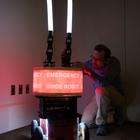

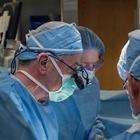
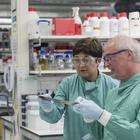
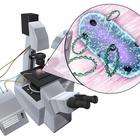

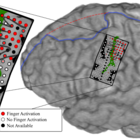


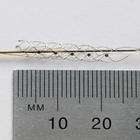


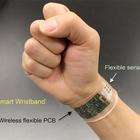

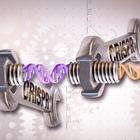
_0_itok-qi7O8PZy.jpg)
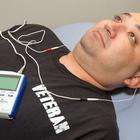
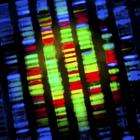
_itok-QTsxrW8j.jpg)




